Recent
July 23, 2024

By 2025, projections indicate that up to 80% of US children will be diagnosed with a chronic disease.
In this webinar, Dr. Song explores the alarming trends in childhood autoimmune disease, effective prevention strategies, and the five steps to healing.
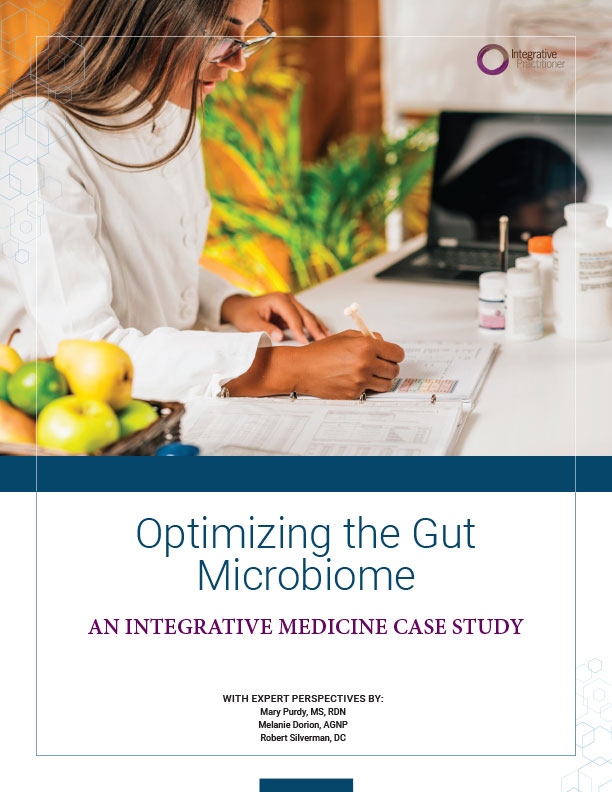
Gastrointestinal health issues can be a sensitive topic for many patients. Whether moderate symptoms or more serious conditions like small intestinal bacterial overgrowth (SIBO), working with patients to improve their symptoms requires a comprehensive but compassionate approach.
In this case report, we review a patient struggling with her gastrointestinal health and resulting significant unintentional weight loss. Featuring expert perspectives from Mary Purdy, MS, RDN, Melanie Dorion, AGNP, and Robert Silverman, DC, the authors walk the reader through gut microbiome-based protocols, addressing nutrition, supplementation, and overall lifestyle.
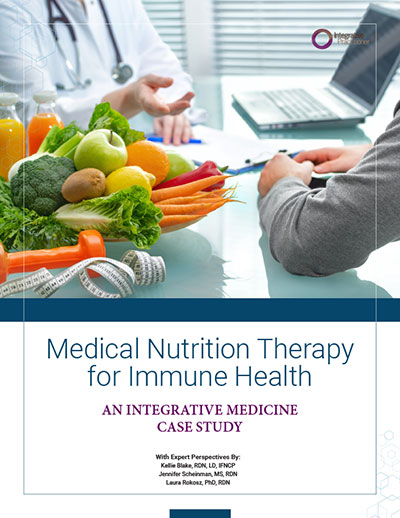
Medical nutrition therapy offers a personalized approach to help patients improve immune function and overall health and wellbeing.
In this case report, we review a patient seeking nutrition therapy to address cold and flu-like . Featuring expert perspectives from Kellie Blake, RDN, LD, IFNCP, Jennifer Scheinman, MS, RDN, Laura Rokosz, PhD, RDN, this report highlights nutrition-based approaches to evaluating and managing immune health, as well as strategies to promote long-term wellbeing.
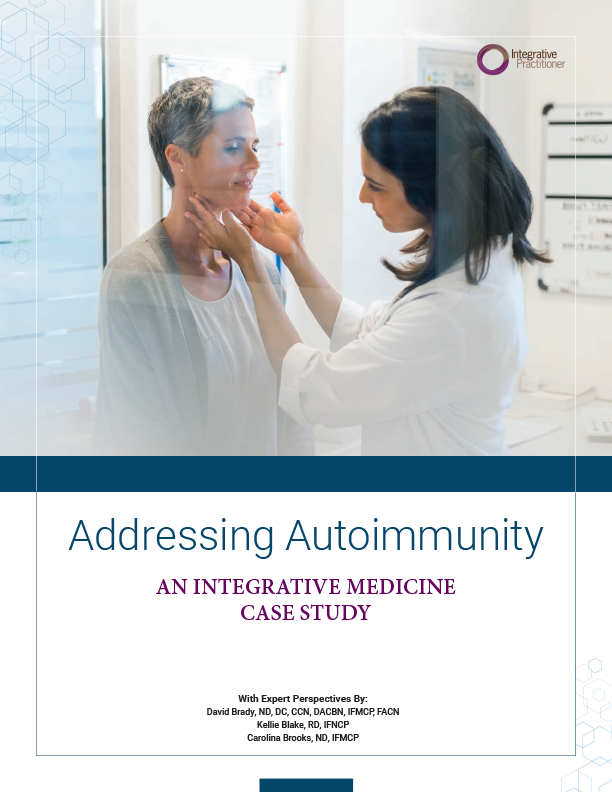
Autoimmune diseases affect millions of Americans each year, with a higher prevalence of cases occurring in women. Conditions like Hashimoto’s thyroiditis, rheumatoid arthritis, and multiple sclerosis have debilitating symptoms, but all too often go misdiagnosed or undiagnosed altogether, or are completely mismanaged in conventional medical approaches.
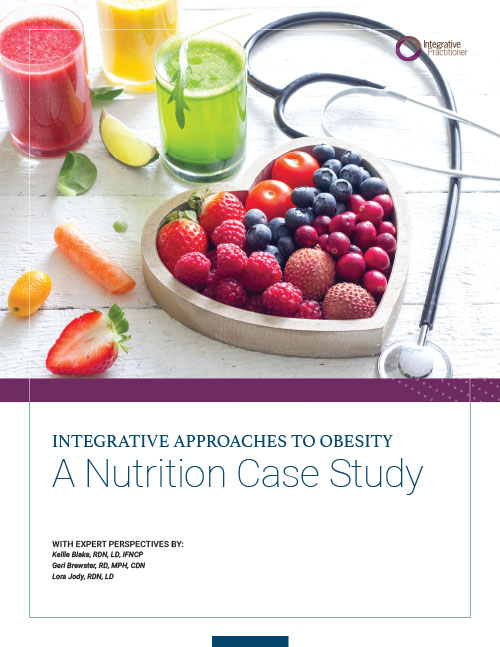
Obesity is one of the most common chronic conditions presenting in integrative healthcare practice. Over 93.3 million Americans are considered obese by the U.S. Centers for Disease Control and Prevention, and obesity can lead to several serious conditions, including heart disease, stroke, and type 2 diabetes.
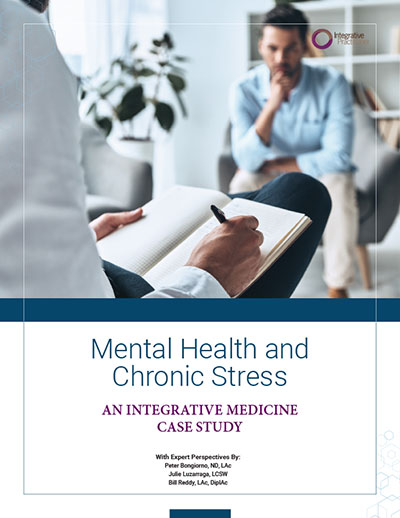
Many patients struggle optimizing their mental health and managing chronic stress. Beyond the mental, emotional, and spiritual health implications are the many physical manifestations that can affect an individual’s ability to both function and thrive.
In this case report, we review a patient struggling with chronic stress. Featuring expert perspectives from Peter Bongiorno, ND, LAc, Julie Luzarraga, LCSW, and Bill Reddy, LAc, DiplAc, this report highlights integrative and natural approaches to evaluating and managing mental health and chronic stress, as well as strategies to promote long-term health.
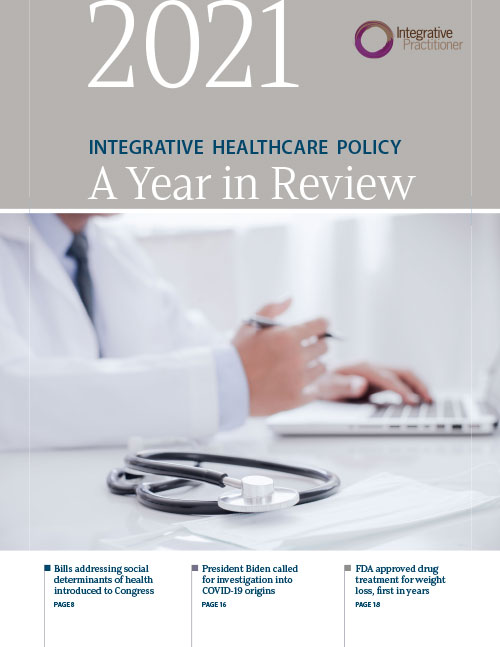
The healthcare industry in the United States—and the laws and policies that regulate the system—was challenged like never before with the advent of the novel coronavirus (COVID-19). In the last year, as the virus continued to grow and evolve, healthcare providers faced navigating not only an unprecedented global pandemic, but figuring out a path forward for the industry.
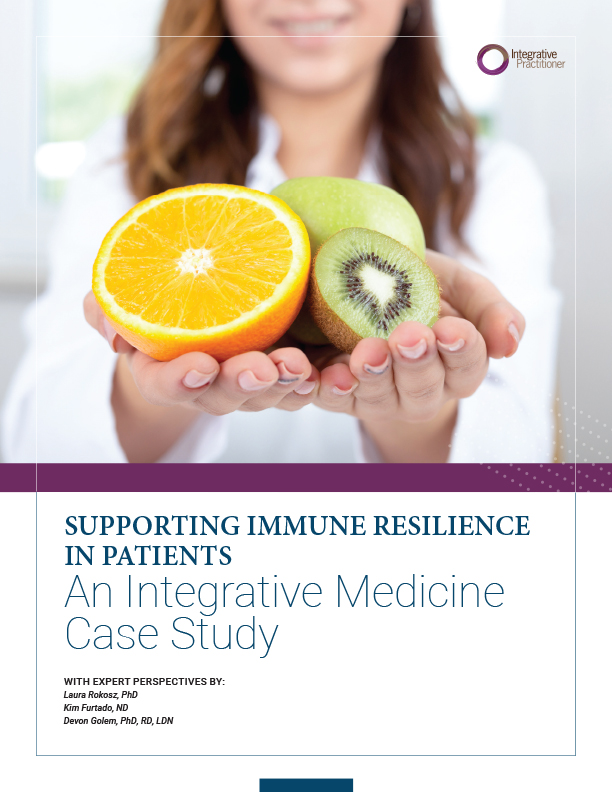
In light of the novel coronavirus (COVID-19), many patients are tuned in to the importance of building immune system resilience. Whether someone is considered at-risk or simply wants to maintain their health, there are several steps practitioners can suggest to put patients in the best position to prevent or overcome illness, and achieve optimal health throughout life.
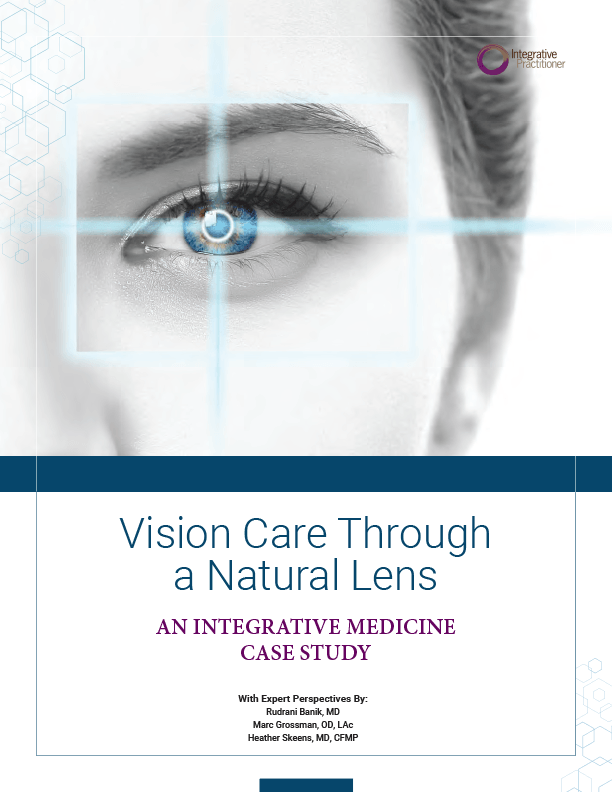
When it comes to eye health, many patients don’t pursue care until something goes wrong and they need an ophthalmologist for treatment. From a practitioner standpoint, conventional eye care focuses mostly on addressing acute symptoms, correcting impairments with a prescription and updating annually until vision changes slow or disease develops requiring surgery. Natural, preventative approaches in the eye care world are lesser known.
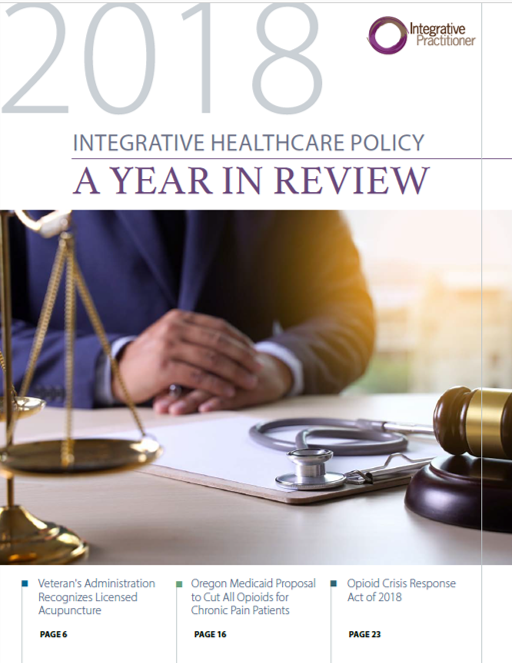
The healthcare industry—and the laws and policies that regulate the system—has been changing rapidly over the past few years. At the demand of both consumers and practitioners who advocate for a preventative, whole-person approach to care, the industry has started to shift away from the traditional “sick care” model and bring integrative medicine to the general public eye.